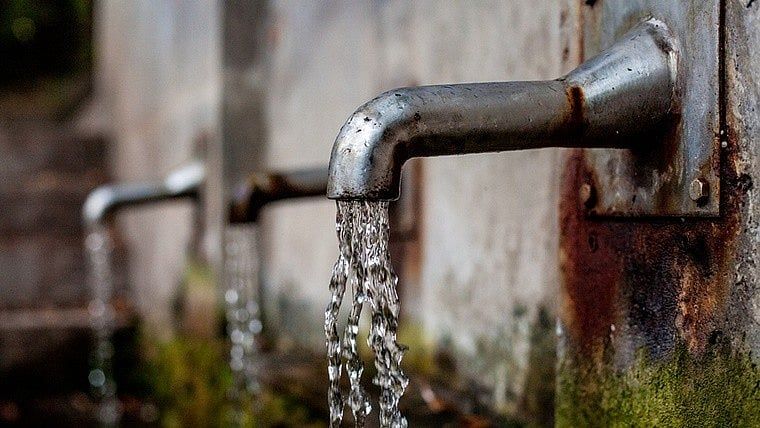
Mumbai: Mumbai is losing as much as 1,400 million litres (ML) of water daily because of leakages and thefts. This constitutes 34% of water supplied by the Municipal Corporation of Greater Mumbai. This gross waste of precious water is taking place even as citizens from several wards complain of water shortage.
Last year, a staggering 26,962 complaints poured in about water theft and pipeline leakages – but this is just the tip of the iceberg. This alarming loss highlights the glaring failure of the measures put in place by the BMC to effectively tackle this growing crisis. While two of Mumbai’s key water sources, Tulsi and Vihar lakes, are located within the city, the other five lakes are spread across neighbouring districts like Palghar, Thane, and Nashik, ranging from 100- 175km away.
Water from these lakes is transported through 650km of transmission pipes and 6,000km of service pipes. Mumbai receives 3,950 ML of water daily, falling short of the total demand of 4,463 ML. Even more concerning is, that the city’s potable water demand is expected to increase by 1.5 times by 2041, reaching 6,900 ML per day.
For years, crores of rupees have been poured into replacing aging pipelines and repairing leaks. Yet, water loss soared to an alarming 34%, up from 20% in 2009. Despite pouring millions into these repairs, the city’s efforts to fix the system have failed.
Founder Of The NGO Pani Haq Samiti Strongly Criticises The Way Of Handling Of City's Water Issue
Sitaram Shelar, founder of the NGO Pani Haq Samiti (PHS), strongly criticises the way the city’s water issue is being handled. He points to the unfair scapegoating of slums for unauthorised water tapping, even though they are some of the most water-deprived communities in Mumbai.
“The BMC once had a dedicated cell for early detection and prevention of pipe leaks, but it was shut down,” he explained. “Instead, crores of rupees were funneled into lucrative contracts to repair these leaks, benefiting only the contractors. Worse, BMC officials are complicit in giving unauthorised water connections to slum ‘dadas,’” Shelar added.
Despite claims of having replaced 80% of old pipelines, he highlighted a glaring truth: “If the pipelines are supposedly fixed, why has water loss only increased? The water department has been weakened by a lack of political will, and the so-called revival of the leak detection cell is just for show. Only one man per ward is working on it – how can that possibly solve anything? Mumbai’s water crisis is not just about scarcity – it’s about a system rigged to fail those who need it the most,” said Shelar.
Statement Of Dr. Subhajit Mukherjee
Dr Subhajit Mukherjee, Water Hero of India, Jal Jeevan Mission, addressed the ongoing water leakage issue in Mumbai, shedding light on the city’s long-standing infrastructure challenges.
“The first-ever pipeline network was introduced to the world during the British era in Mumbai,” he noted. “Leakage is a common issue with any supply system, and it is unrealistic to expect zero leaks. However, timely maintenance is essential,” he said.
Dr Mukerjee acknowledged that while the BMC is making efforts to reduce water leaks, they have not been fully successful. “Frequent audits have been conducted, but the BMC’s failure lies in poor execution. There are new technologies, including AI-based apps, to detect leaks, but these require financial investment. The BMC is working on this, but progress is slow,” said Dr Mukherjee.
He also pointed out that water leakage occurs within homes, particularly through flushing systems and the use of water for non-potable purposes. “Unfortunately, people aren’t taking these issues seriously,” he added.
Given the city’s rapid development, Dr. Mukherjee emphasised that the BMC should make individual water metering mandatory in new constructions to monitor and reduce unnecessary water usage. “The water pipelines that supply Mumbai are laid through forested and remote areas, with many sections buried underground.
This makes their security and maintenance crucial to prevent leaks and theft. However, these pipelines are highly vulnerable to damage from environmental factors like soil erosion, silt, humidity, waste, and chemicals, all of which accelerate corrosion and lead to increased water leakage. Also, 38% of engineering positions in the hydraulic engineering department are vacant, leaving the department short-staffed.
In recent years, several ongoing infrastructure projects across the city have further damaged these pipelines,” said a senior civic official. Despite these setbacks, the BMC has laid a tunnel network spanning 95km, with work on an additional 20km still in progress. As part of its ‘Water to All’ policy, the BMC has also provided approximately 7,868 new water connections to slum areas between June 2022 and December 2024, said the official.
Abhijeet Bangar, Additional Municipal Commissioner (Projects), said, “A consultant has been tasked with preparing a plan to reduce non-revenue water. He will suggest effective measures to address leakages and prevent theft.”